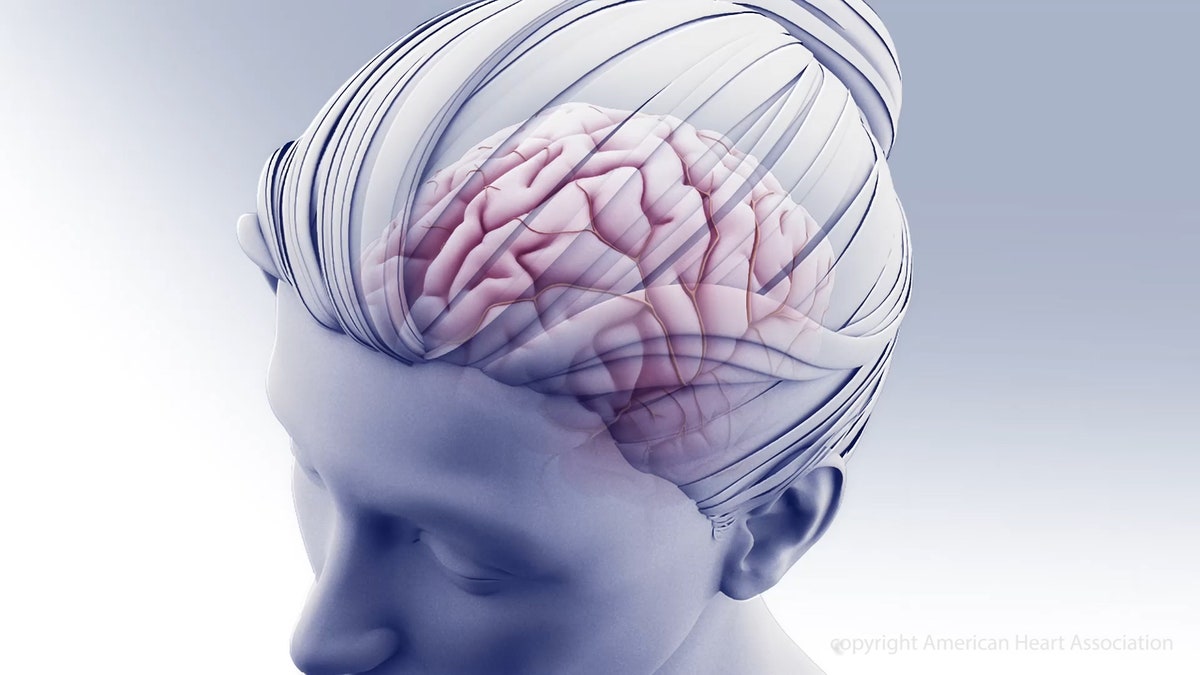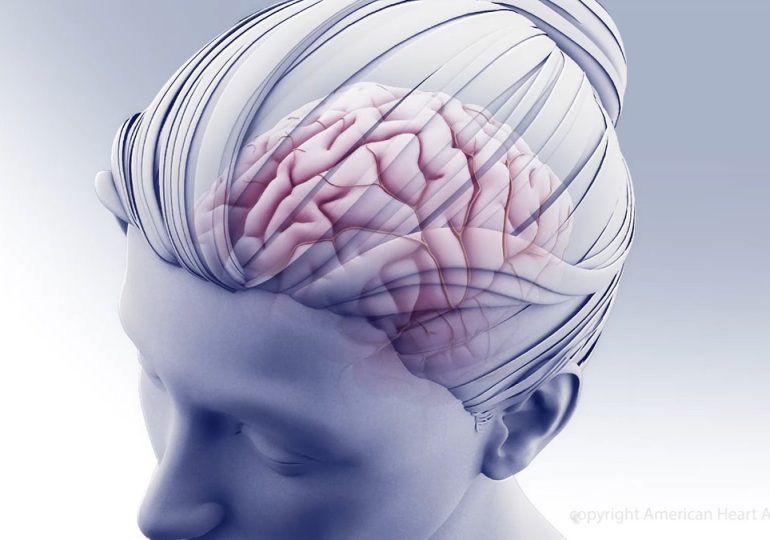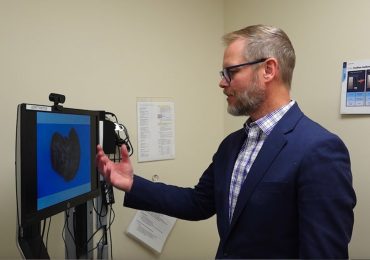People who have been diagnosed with a brain aneurysm may be more susceptible to certain mental health conditions, according to a study published by the American Heart Association (AHA).
The knowledge of an unruptured aneurysm increased the risk of anxiety, stress, depression, insomnia, bipolar disorder, eating disorders, and alcohol or drug misuse by 10% over a 10-year period, the researchers found.
An unruptured aneurysm occurs when a blood vessel in the brain becomes weak and bulges out — creating the risk of a potentially deadly rupture, per the AHA.
RUPTURED BRAIN ANEURYSM LANDS SOCIAL MEDIA INFLUENCER IN MEDICALLY INDUCED COMA AFTER EMERGENCY C-SECTION
The effect was most seen in adults under 40 years of age, and the risk was three times greater among those who received an official mental health diagnosis.
The researchers analyzed data for 85,438 adults with untreated aneurysms between 2011 and 2019, comparing them to 331,000 adults without aneurysms.

An unruptured aneurysm occurs when a blood vessel in the brain becomes weak and bulges out, creating the risk of a potentially deadly rupture. (American Heart Association)
The data came from the National Health Information Database in South Korea.
The findings were published in Stroke, the peer-reviewed scientific journal of the American Stroke Association, a division of the AHA.
MICHIGAN MOM: ‘I HAD A STROKE AT 39 — AND THE WARNING SIGNS WEREN’T WHAT YOU’D EXPECT’
“As a neurosurgeon who treats cerebral aneurysms, I often see people who do not undergo surgery, yet feel fear and/or anxiety about their condition before each imaging or screening test to monitor their condition,” said study co-author Na-Rae Yang, M.D., PhD, an assistant professor of neurosurgery in the department of neurosurgery at Ewha Womans University College of Medicine in Seoul, South Korea, in a press release.
“Even when it is medically judged and explained that follow-up observation is the best course for their aneurysm rather than surgery, they still worry about the very slim chance of developing a fatal brain bleed.”

The fact that younger adults were more likely to have a “significant psychological burden” could be linked to other life stressors, an expert noted. (iStock)
The fact that younger adults were more likely to have a “significant psychological burden” could be linked to other life stressors, Yang noted, such as building their career and/or raising a family.
“This elevated rate of mental health conditions suggests that younger people might be particularly vulnerable, highlighting the need for targeted mental health support and interventions for this age group,” she added.
TIAS AND MINI-STROKE RISKS: CARDIOLOGIST SHARES WARNING SIGNS AND PREVENTION TIPS
Dr. Daniel T. Lackland, an American Heart Association EPI and Stroke Council member and professor of epidemiology at the Medical University of South Carolina, was not involved in the study but said he was not surprised by the findings.
“While there is no evidence that aneurysms directly cause anxiety and mental disorders, this study suggests there may be a connection between stress and aneurysms, and that unruptured aneurysms can increase emotional distress,” he told Fox News Digital.

The knowledge of an unruptured aneurysm increased the risk of anxiety, stress, depression, insomnia, bipolar disorder, eating disorders, and alcohol or drug misuse by 10% over a 10-year period, the researchers found. (iStock)
“For example, an enlarging aneurysm may physically affect nearby sympathetic ganglia, which could produce panic or anxiety symptoms.”
Extreme emotional stress could also increase the risk of an enlarged aneurysm rupturing, which could increase anxiety, Lackland added.
ANGER CAN INCREASE HEART ATTACK RISK, STUDY FINDS: ‘CHRONIC INSULT TO ARTERIES’
Based on the findings, Lackland recommends maintaining active and regular communication with health providers, particularly for individuals with a family history of brain aneurysms.
“If diagnosed with a brain aneurysm, [the patient should] follow through with the appropriate and proper treatment,” he advised.
“Brain aneurysms, like aortic aneurysms, are life-threatening if they rupture, but can be treated with appropriate therapy and/or procedures.”

Although the findings suggest an association between aneurysms and mental health conditions, they can’t prove cause and effect, the researchers noted. (iStock)
Dr. Bradley Serwer, a cardiologist and chief medical officer at VitalSolution, a Cincinnati-based company that offers cardiovascular and anesthesiology services to hospitals nationwide, has also noticed this phenomenon in his own practice.
“Whether the patient is told they have a brain aneurysm or they have an abnormal heart valve, irregular heart rhythm or aortic aneurysm, the psychological ramifications are significant,” Serwer, who was not involved in the research, told Fox News Digital.
CLICK HERE TO GET THE FOX NEWS APP
Younger patients may have fewer coping mechanisms, he noted.
“They tend to perseverate more on the medical conditions, and this can lead to anxiety.”
CLICK HERE TO SIGN UP FOR OUR HEALTH NEWSLETTER
This study highlights the importance of taking a multidisciplinary approach to patient care, Serwer said, as well as the “dramatic need” for more behavioral and mental health services to support these individuals.
Potential limitations
The study did have some limitations, the researchers acknowledged.
The analysis relied on a national database of medical codes rather than input from individual patients.
“Brain aneurysms, like aortic aneurysms, are life-threatening if they rupture, but can be treated with appropriate therapy and/or procedures.”
Additionally, the research did not take into account the size or location of the aneurysms.
Although the findings suggest an association between aneurysms and mental health conditions, they can’t prove cause and effect, the researchers noted.
For more Health articles, visit www.foxnews/health
“As the authors indicate, there is inadequate evidence to indicate that brain aneurysms cause increased mental health risks,” said Lackland.
“Also, the study was done in Korea — and it is unclear if the results can be generalized to other populations.”









